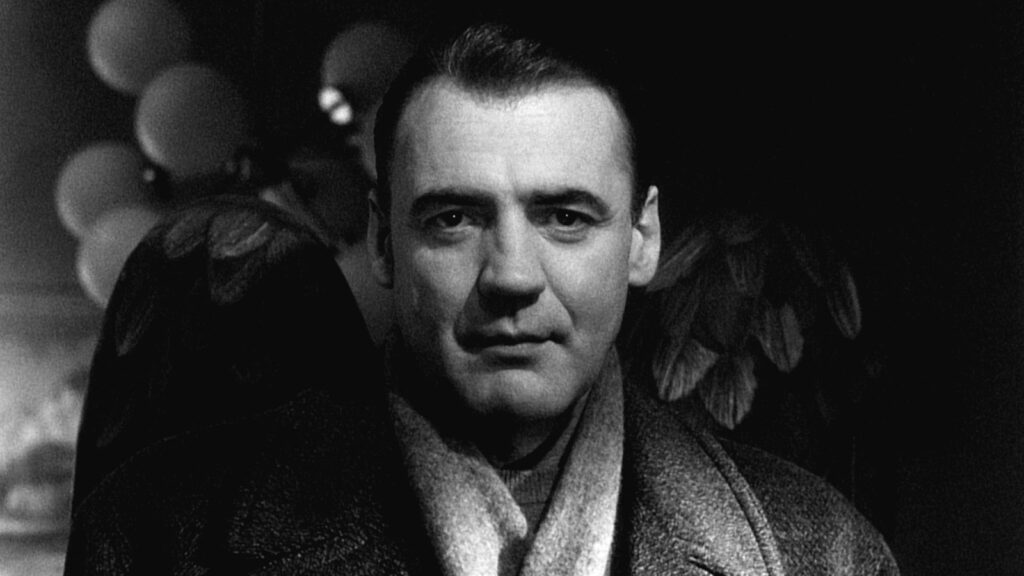Few actors have the range to play an angel and one of history’s devils but Bruno Ganz was not an ordinary actor. It’s telling that the two roles for which he will likely be most remembered are on the extreme edges of morality: Damiel the Angel in “Wings of Desire” and Adolf Hitler in “Downfall.” And yet what is most remarkable about these performances is that Ganz never leaned into their possible extremes, grounding both the good and evil on Earth. He always found a way to do that, to add just enough weight to every role he played to make his characters believable without being showy. He was genuine without being flashy, and film would be better with more consistently solid performers like him. There’s a reason he held the Iffland-Ring since 1996, which is passed through the generations by the “most significant and most worthy actor of the German-speaking theatre.” When the actor succumbed to cancer this week, the form lost a titan.
Born in Zurich, Bruno Ganz was interested in acting from a very early age, showing interest in theatre in school. Starting in 1961, he worked almost exclusively on stage, founding an acting ensemble in 1970, and wining a prestigious theatre magazine’s Actor of the Year Award in 1973.
In the ‘70s, Ganz became a part of major films by two of the key voices of the German New Wave: Wim Wenders and Werner Herzog. His breakthrough came in Wenders’ “The American Friend,” an adaptation of Patricia Highsmith’s Ripley’s Game, in which Ganz co-starred with Dennis Hopper. Immediately, one could sense that there was something special in Ganz’s work. In the film, he plays Jonathan Zimmerman, a dying man coerced into becoming a criminal by Hopper’s version of the legendary Tom Ripley. As he would throughout his career, Ganz completely avoids the pitfalls of such a character description or the narrative’s genre trappings, working with Wenders to give a subtle, centered performance in what is essentially a noir homage.
Two years later, Ganz would star in one of Werner Herzog’s most beloved films from the period, another film that feels flung out of time from a different era of moviemaking, “Nosferatu the Vampyre.” Opposite Klaus Kinski’s unforgettable Count Dracula and Isabelle Adjani’s Lucy Harker, it can be hard to make an impact but Ganz had the ability to be a true supporting actor, someone who doesn’t steal focus and elevates the work of those around him.

He would do exactly that over the next four decades, working with directors like Eric Rohmer, Francis Ford Coppola, Jonathan Demme, and Lars von Trier, among dozens more. The first of his most famous roles came in 1987, when Ganz reunited with his “American Friend” director to appear in one of the best films of 1980s, the masterpiece that is “Wings of Desire.” Ganz plays Damiel, an angel who watches over the city of Berlin, listening to the thoughts of its denizens. He is older than the city, and older than humanity, and few other actors could have brought the gravity necessary for an otherworldly being who has seen the entirety of the human condition without allowing the character to float off into something entirely unrelatable.
Damiel falls in love with a trapeze artist named Marion and realizes that infinite observance can be kind of a drag. Wenders’ dreamy fantasy about the beauty of human existence wouldn’t work without the moving, in-the-moment work from Ganz. Damiel learns the value of experience and everything that comes with it – the pain and the beauty. It’s a film about being forced to watch instead of do, and the narrative played well to Ganz’s stolid demeanor. As Roger wrote in his Great Movies piece on the film about Ganz, “It is an ordinary, pleasant, open face, not improbably handsome. Like a creature who has been observing since the dawn of time, he doesn’t react a lot. He has seen it all. Now he wants to feel.” The brilliance of the performance is in how Ganz makes both sides of that dynamic believable – the observer and the being who now wants to feel.
The meme machine means, at least for now, most people remember Bruno Ganz from the “Downfall” clip that is still used as internet shorthand. However, if you haven’t actually seen the film from which this hails, you should correct that oversight. Ganz is riveting as Adolf Hitler in his final days, and the film was a massive hit, earning an Oscar nomination for Best Foreign Language Film.
Over the last few decades, Bruno Ganz had the ability to jump genres, budgets, and nations in his work. He could appear in something like Sally Potter’s “The Party” or Atom Egoyan’s “Remember,” but also looked at home in more of an action movie like the Liam Neeson vehicle “Unknown.” If he had only made “Wings of Desire,” he would have a place in film history, but he had over 100 other film credits, always working, always elevating everything in which he appeared. He has a few films left unreleased, including an action drama called “I Witness” and a film in which he plays Sigmund Freud called “The Tobacconist.” He also has done some work on Terrence Malick’s “Radegund” (but that never means for sure he’ll actually be in the final movie). Freud, Malick, and an action-drama. Bruno Ganz was doing it all right up to the end. And beyond.












